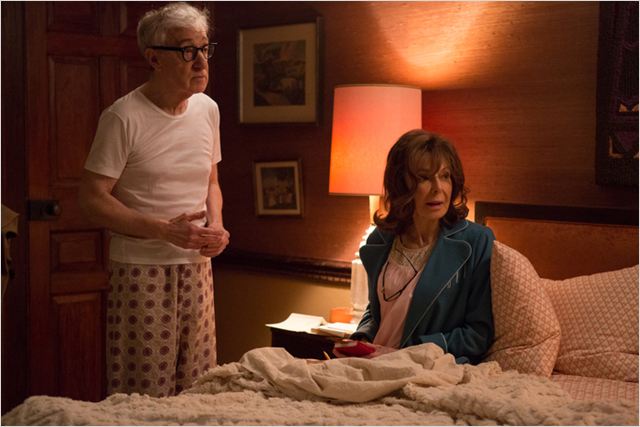In this series, Woody Allen invites us to discover the life in the 60s of a middle-class suburban family, whose unexpected visit from a guest will upset everyday life. Let's go back to Crisis in six scenes, one of the most anticipated series of this fall.
From the first minute of Crisis in six scenes, we find Woody Allen's paw with a cynical Woody, who stutters, stammers on his haircut, his writing, then on society. His character, Sidney Mussinger, a short story writer who also writes commercials for a living and is persuaded to write a series, clearly reminds us of the director. Closing the discussion on this question, he then lets us discover the other characters of this mini-series.

An interesting plot at first glance
We discover a gallery of colorful characters. His wife Kay (Elaine May) is an underrated marriage counselor, who, in her spare time, leads a very impressionable reading group. She and her cronies will be easily convinced by the arguments presented by Lenny (Miley Cyrus), an activist who fights against the Vietnam War and capitalist society. They will not be the only ones to be convinced since Alan (John Magaro), the son of a family friend hosted by Kay and Sidney, a young good in all respects, will also be seduced by Lenny and his ideas… And it will literally blow up in his face.
And if the plot makes you want, it has trouble getting started. We are still caught up in this gallery of characters, but this is mainly due to the format, despite the great performances of the actors. The series is indeed more like a film in six chapters than as a real series. Crisis in six scenes is shot like a movie, the episodes are naturally linked pushing bingewatching. However, we regret that the director did not know how to use the codes of the series.

A comedy faithful to Woody Allen's cinema
Failing to find the codes of the series, we clearly find those of the director: cynicism, criticism of society, "Woodynesque" characters, long dialogues … The series also relies a lot on the latter… And for a series about activism, that's a shame. Especially since if the dialogues are relevant, they sometimes lose their strength by falling into a certain chatter, even certain clichés. We will still be entitled to some moments of anthology: seeing Woody Allen jump from a roof, it is priceless! And then, as we know well with Woody, comedy more often goes through the finesse of his words and his characters.
Based on these criteria and the scenario: "gentrified characters who spend hours debating society without acting, before the arrival of a shattering activist outspoken and without limits who comes to kick the anthill to awaken formatted minds", All the elements seemed to be there to make a good comedy. But in the end, we unfortunately quickly fall into a pattern seen and reviewed in Woody Allen. The pace is not sustained, some passages will make us laugh and excite us, others will bore us. Episode after episode, we let ourselves be carried away hoping for the little extra thing that will make this experience better, without it really happening. Fortunately, the end near the vaudeville gives a little breath to this comedy sometimes a little too talkative.

When the final credits roll, we still remain on our end, not really knowing what to think of this first moderately convincing attempt. And to tell the truth the series is nothing significant, we forget it just as quickly as we saw it. Woody Allen remains a better filmmaker than he is showrunner, but we salute him for his effort.


















